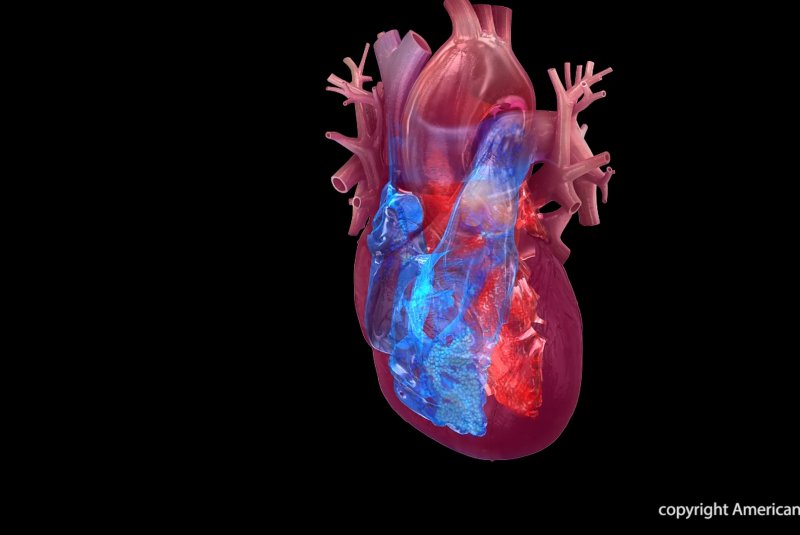Overdose death donors account for nearly 17 percent of heart transplantations, a 14-fold increase since 2000, research shows. File Photo courtesy of the American Heart Association
June 6 (UPI) -- The tragedy of the opioid epidemic has inadvertently helped fill the shortage of organs in the United States, new research shows.
Today, overdose death donors account for nearly 17 percent of heart transplantations, a 14-fold increase since 2000, according to a study published in The Annals of Thoracic Surgery.
"The opioid epidemic has increased the proportion of hearts transplanted from overdose death donors (ODD)," Nader Moazami, a researcher at the NYU Langone Medical Center and study author, said in a news release. "One of the roles of the transplant community is to at least partially mitigate the tragedy of this exponentially growing problem by maximizing the utilization of organs from ODD."
The researchers analyzed data from the Scientific Registry of Transplant Recipients database and found 15,904 isolated heart transplants from adult donors between 2000 and 2017.
Nearly 11 percent of those donors died from opioid overdoses, representing the fourth largest donor group behind donors who died from blunt injuries, hemorrhage/strokes and gunshot wounds.
The researchers discovered donors who died from opioid overdoses normally had higher rates of substance abuse, were under age 40 and less likely to have diabetes and hypertension. That made the ODD of "favorable heart donor quality."
"The dramatic increase in the rate of ODD utilization was striking, and it has increased concordantly with the rate of overdose deaths," Moazami said. "The significant impact of the opioid epidemic on transplantation is one of the major reasons that organ transplant numbers have increased over the last several years."
Researchers say the opioid epidemic has also increased the number of other organs available for donation in the United States.
In another study by the same researchers, scheduled to be published in The Annals, opioid ODD were found to provide 7 percent of all transplanted lungs between 2010 and 2017, according to the release.
Needle injections for opioid drug use have also driven up the number of hepatitis C virus cases, which once led doctors to throw away infected organs. Now, organs infected with hepatitis C can be treated with antiviral medication, the researchers say.
"In spite of the public crisis that the opioid overdose epidemic has created recently, the impact on organ transplantation and the unintended consequences of increasing the number of donor hearts is noteworthy," said Robert S.D. Higgins, the former president of the United Network for Organ Sharing (UNOS), who was not directly involved with the study.
"Many of these donors have been associated with diseases that have historically been considered 'high risk' by public health services. This important study highlights the need for additional research in this area to further define the 'risk' as well as the reward of expanding the donor pool to save more lives," Higgins said.















